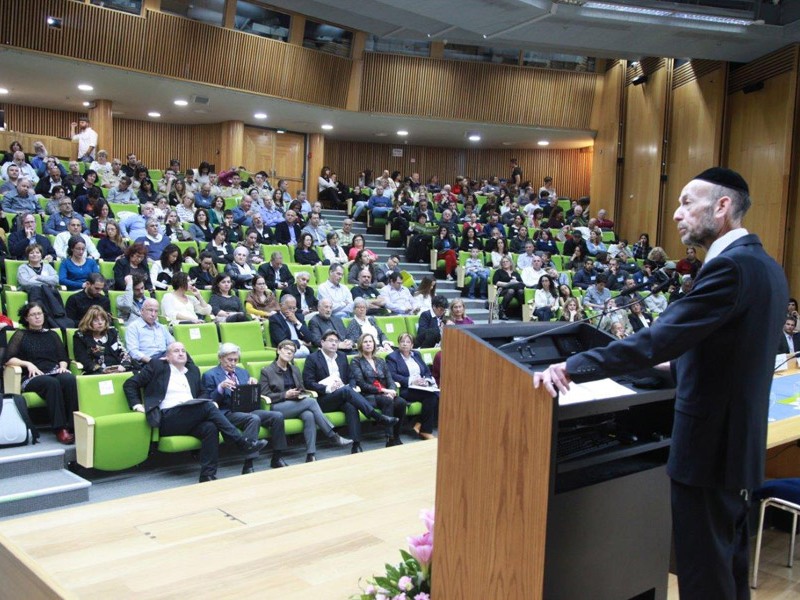Winners of Young Scientists Competition announced at Knesset
-
-
3/17/2016
GovXShortDescription
Some projects involved practical inventions, while others were more social and historical, such as life in divided Berlin; the influence of Julius Caesar on the fall of the Rome; and feminism in Orthodox Jewish society compared to secular Jewish society
-
-

 Science Committee Chairman MK Maklev addresses the students
Copyright: Itzik Harari
Science Committee Chairman MK Maklev addresses the students
Copyright: Itzik Harari
|
GovXContentSection
(Communicated by the Knesset Spokesperson)
The winners of the 19th Young Scientists and Developers Competition were announced on Tuesday (March 15, 2016) during an event held at the Knesset's Shilansky Auditorium to mark Israel Science Day, sponsored by the Knesset's Science and Technology Committee. The competition is held among high school pupils by Jerusalem’s Bloomfield Science Museum, in cooperation with the Education Ministry, the Israel Academy of Sciences and Humanities and the Intel company. The winners received higher education study grants and will represent Israel at the Intel ISEF competition in the United States. They will also take part in science forums in Germany, England and Switzerland.
A total of 67 young entrants who created 49 projects competed for the prizes. The finalists were selected from among 210 projects in high schools around the country. The panel of judges was headed by Prof. Hanoch Gutfreund, former president of the Hebrew University and one of the world’s experts on Albert Einstein.
Science, Technology, and Space Minister Ofir Akunis congratulated the winners and said, "The future of the State of Israel is sitting in this hall. You are the promise of our future. Israel is a pioneering superpower in the fields of science and technology, and people all over the world are looking at us with admiration and pride. In order for Israel to maintain its status as a leader in innovation, we must support the youth."
Science and Technology Committee Chairman MK Uri Maklev told the students, "Your success is our success; your pride is our pride. Science and technology education, particularly in the periphery, is one of the goals we have set for ourselves in order to narrow the social gaps in Israel." The committee, he added, serves as a public platform for formulating a policy to deal with the "positive and negative effects that technological advancement brings." Maklev encouraged the students to continue with their important work and realize their potential.
Several projects involved practical inventions, while others were more theoretical and more socially and historically oriented, such as life in the divided city of Berlin between 1945 and 1963; the influence of Julius Caesar on the fall of the Roman Republic; and feminism in Orthodox Jewish society compared to secular Jewish society.
-
-
-
-
-
-
-
-
-
-
-
-
-
-
-
-
-
-
-